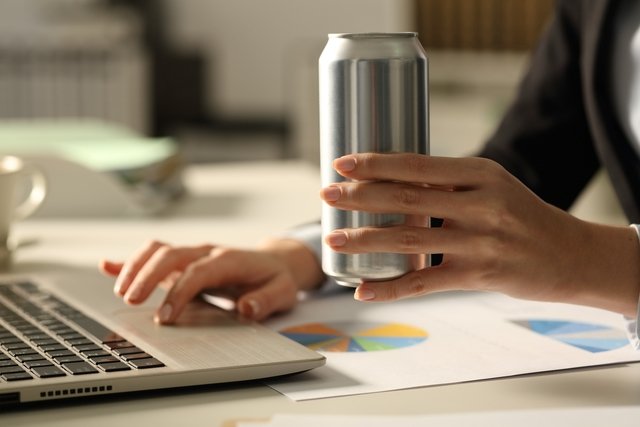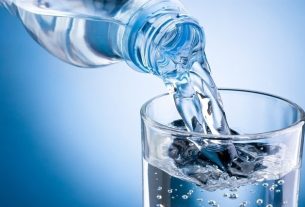Energy drinks are a drink that stimulates the central nervous system, reducing fatigue and improving alertness and physical performance, and is therefore widely consumed by people who practice physical activities or need more energy on a daily basis.
This happens because energy drinks normally contain high amounts of caffeine and taurine, substances that have a stimulating and ergogenic effect. Additionally, some energy drinks also contain other stimulating ingredients, such as guarana and ginseng.
When consumed in moderation, energy drinks are not harmful to many people’s health. However, when consumed frequently or in large quantities, the energy drink can cause insomnia, headache, increased blood pressure and heart rate, and seizures.

Is energy drink bad?
Exaggerated and frequent consumption of energy drinks can cause the following problems:
- Insomnia;
- Increased blood pressure;
- Dehydration;
- Irregular heartbeat;
- Anxiety;
- Headache;
- Convulsion;
- Cardiac arrest.
Many energy drinks are rich in sugar, which can promote body weight gain and increase the risk of developing type 2 diabetes, cardiovascular disease and gout. Know all the harm sugar has for your health.
Furthermore, drinking energy drinks mixed with alcoholic beverages can also increase alcohol intake. This happens because the energy drink increases the state of alert, disguising the signs of drunkenness, which makes the person believe that they can still consume more alcoholic drinks.
Is energy drink bad for pregnant women?
The energy drink is not recommended for pregnant women, as it is a drink with high amounts of caffeine. This is because consuming more than 200mg of caffeine per day can reduce the flow of blood, oxygen and nutrients through the placenta, disrupting the baby’s development or even causing miscarriage.
Furthermore, during pregnancy, a woman’s body takes longer to digest caffeine and, therefore, the consumption of energy drinks can cause some changes, such as poor digestion, insomnia, dizziness or nausea.
Recommended quantity
There is no recommended amount of energy drink, as the amount of caffeine and other caffeine-containing ingredients may vary between different brands of energy drinks.
Some energy drinks can contain up to 500 mg of caffeine in a 473 ml can, while others can contain 400 mg of caffeine per 1 liter of energy drink. Therefore, it is important to always check the amount of caffeine present in the portion of each energy drink, observing the nutritional label. Check the recommended amount of caffeine per day.
Possible side effects
Because it contains caffeine and taurine, excessive consumption of energy drinks can cause side effects such as insomnia, dehydration, anxiety, stomach pain, diarrhea, seizures, vomiting, increased heart rate, difficulty breathing, tremors and, in some cases, death. .
Who should not consume
According to the Brazilian Society of Pediatrics and the American Academy of Pediatrics, energy drinks are not recommended for children and adolescents, as this drink can harm the development of children’s nervous and cardiovascular systems.
In addition, energy drinks should also be avoided by people with allergies to some of the ingredients in energy drinks, pregnant or breastfeeding women, and people with insomnia, anxiety, tinnitus, labyrinthitis, reflux, ulcers, gastritis or kidney problems.
Natural energy drinks options
Some natural energy drinks that help improve mood are:
- Café;
- Green Tea;
- Guarana;
- Cocoa.
Furthermore, Peruvian maca is a root that has a stimulating action, making it a great option for improving concentration, energy and mood. Discover more foods that give energy and improve your mood.
Read too: Natural energy drink: 6 delicious recipes for training (and how to prepare)

Sign up for our newsletter and stay up to date with exclusive news
that can transform your routine!
Warning: Undefined array key "title" in /home/storelat/public_html/wp-content/plugins/link-whisper-premium/templates/frontend/related-posts.php on line 12
Warning: Undefined array key "title_tag" in /home/storelat/public_html/wp-content/plugins/link-whisper-premium/templates/frontend/related-posts.php on line 13



